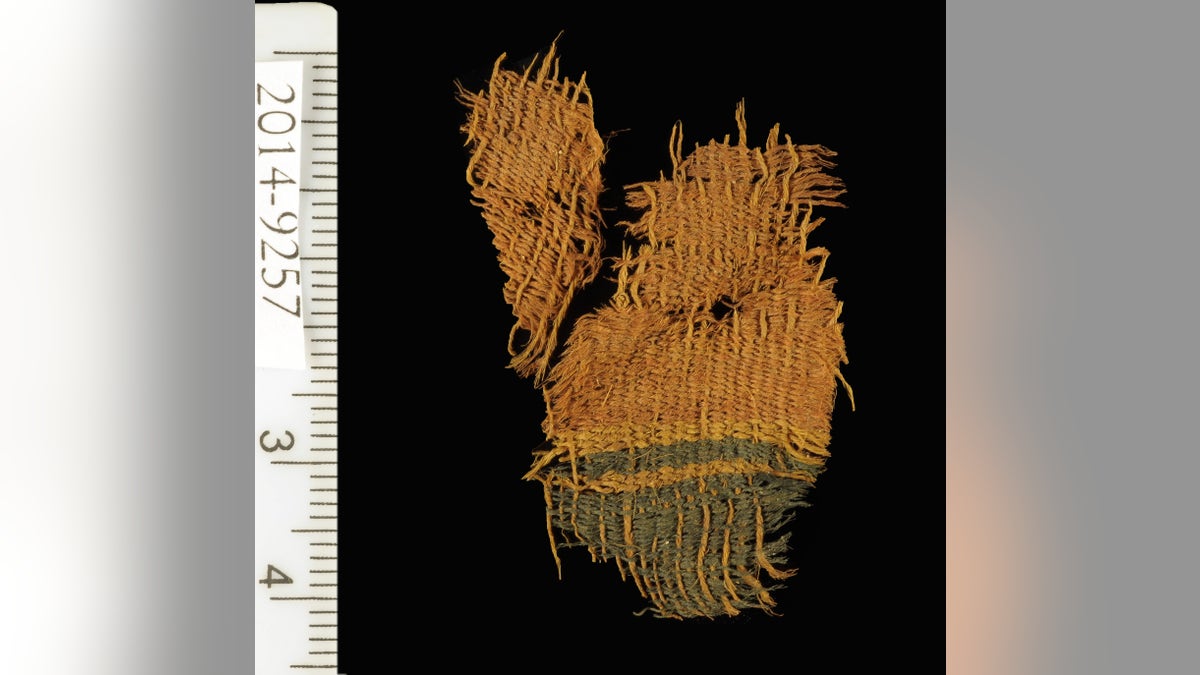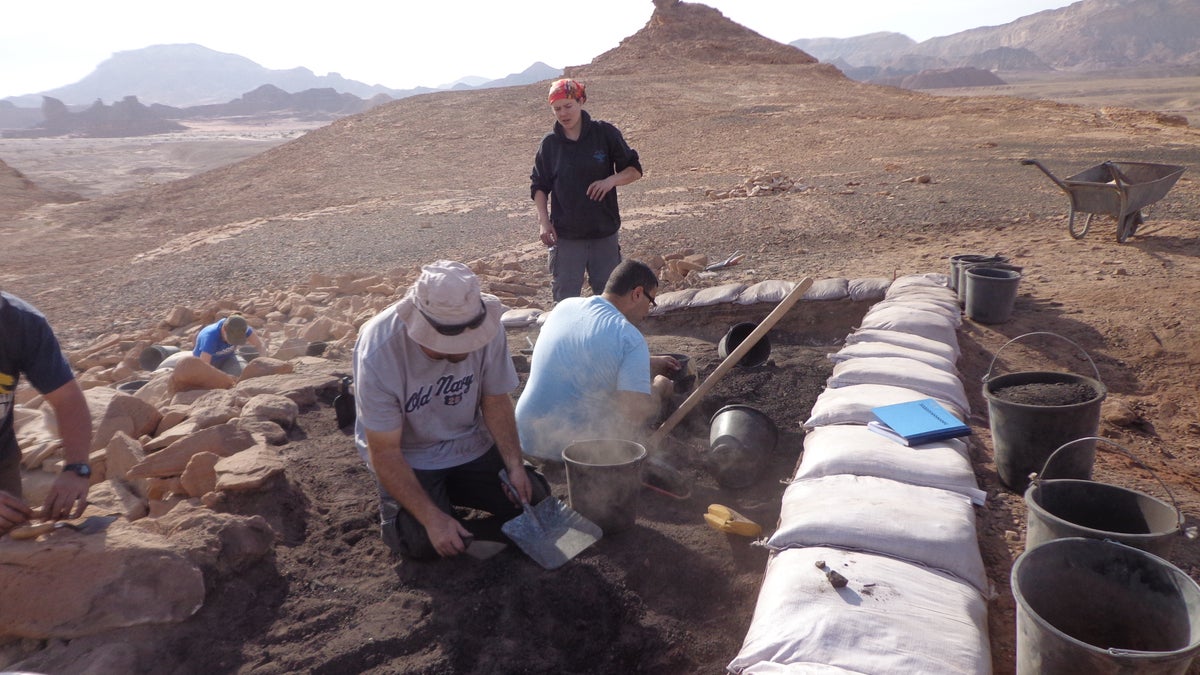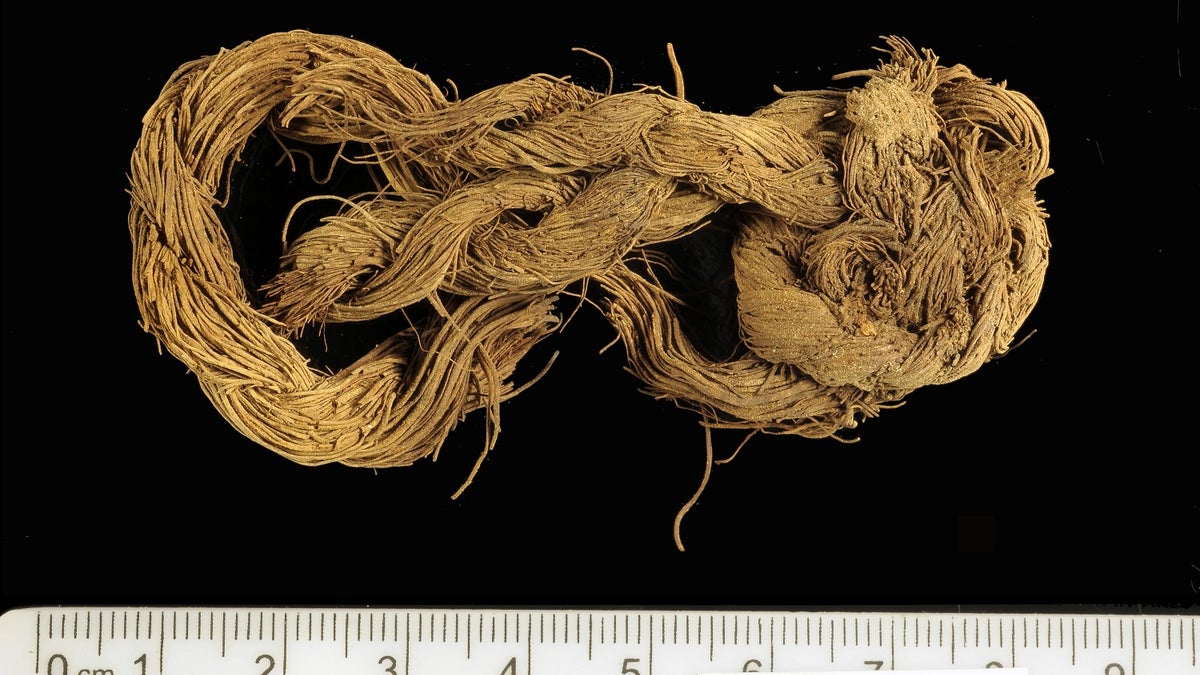
Fine wool textile dyed red and blue. The textile used the varying colors of natural animal hair to create black and orange-brown colors for decorative bands. (Clara Amit, courtesy of the Israel Antiquities Authority) ( )
Scientists have uncovered an extensive fabric collection from the era of Kings David and Solomon in an ancient copper mine located deep in Israel’s Arava Valley.
This is the first discovery of textiles dating from the era of David and Solomon, and sheds fresh light on the historical fashions of the Holy Land. The textiles - tiny pieces of fabric that vary in color, weaving technique and ornamentation - also offer insight into the complex society of the early Edomites, the semi-nomadic people believed to have operated the copper mines at Timna.
“No textiles have ever been found at excavation sites like Jerusalem, Meggido and Hazor, so this provides a unique window into an entire aspect of life from which we’ve never had physical evidence before,” Tel Aviv University’s (TAU) Ben-Yosef, who led excavation team, said of the textiles that originated from bags, clothing, tents, ropes and cords.

The excavation of a metallurigical workshop at Site 34. (Central Timna Valley Project – Tel Aviv University)
Related: 'Space archaeologists' show spike in looting at Egypt's ancient sites
“The wide variety of fabrics also provides new and important information about the Edomites, who, according to the Bible, warred with the Kingdom of Israel,” he said in a statement. “We found simply woven, elaborately decorated fabrics worn by the upper echelon of their stratified society. Luxury grade fabric adorned the highly skilled, highly respected craftsmen managing the copper furnaces. They were responsible for smelting the copper, which was a very complicated process.”
The mines were producing copper, a critical component in weapons and tools in ancient societies. To support huge mining communities in the middle of the desert, food, water and textiles had to be transported long distances. The textiles help unravel the trade practices and the regional economy back then, researchers said.
"We found linen, which was not produced locally. It was most likely from the Jordan Valley or Northern Israel. The majority of the fabrics were made of sheep's wool, a cloth that is seldom found in this ancient period," TAU masters student Vanessa Workman said. "This tells us how developed and sophisticated both their textile craft and trade networks must have been."

Rope made of the fibers of a date palm tree found at Site 34. (Clara Amit, courtesy of the Israel Antiquities Authority)
Related: Mysterious artifact discovered at Bethlehem's Church of the Nativity
The arid conditions of the mines have led to a trove of important discoveries in the past, including the remarkable preservation of 3,000-year-old organic materials, including seeds, leather and fabric, and other extremely rare artifacts.
Along with the textiles, researchers also recently discovered thousands of seeds of the Biblical “Seven Species” at the site — the two grains and five fruits considered unique products of the Land of Israel. Some of the seeds were subjected to radiocarbon dating, providing robust confirmation for the age of the site.
Related: Archaeologists uncover 7,000-year-old settlement in Jerusalem
“This is the first time seeds from this period have been found uncharred and in such large quantities,” Ben-Yosef said. “With the advancement of modern science, we now enjoy research options that were unthinkable a few decades ago. We can reconstruct wine typical of King David’s era, for example, and understand the cultivation and domestication processes that have been preserved in the DNA of the seed.”








































